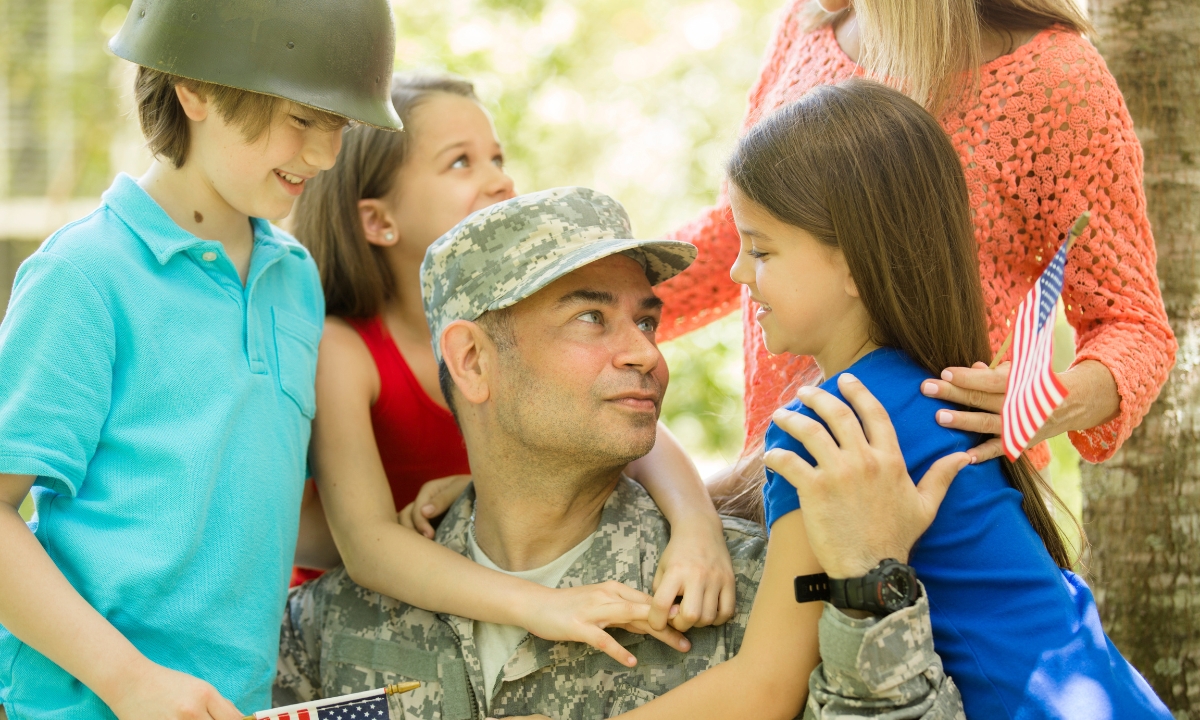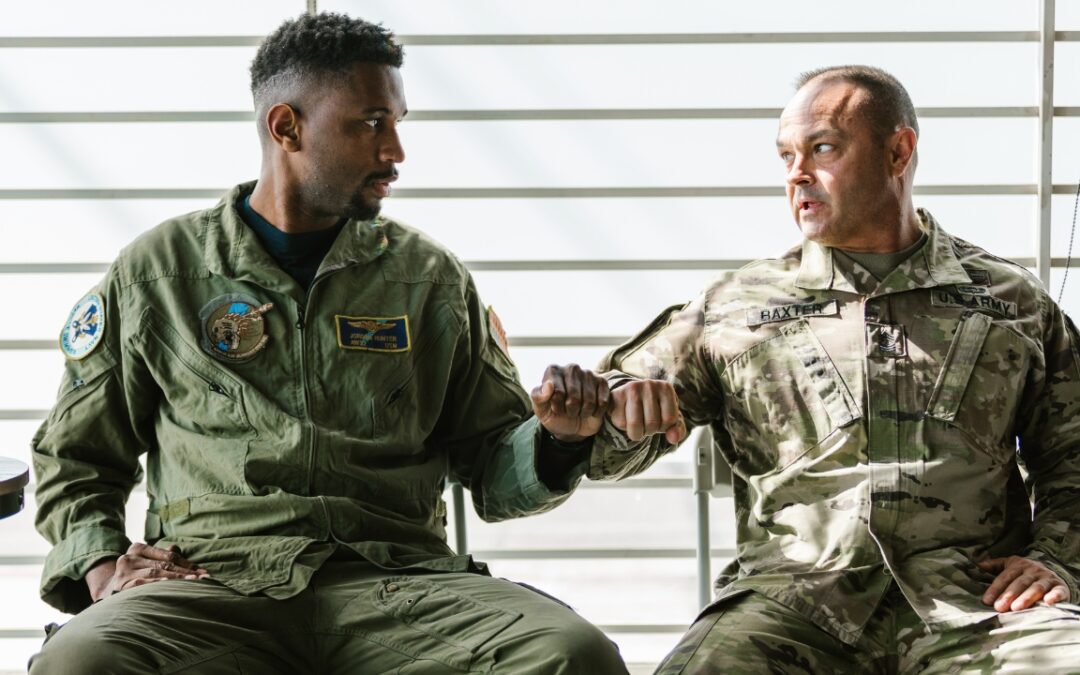Before it’s possible to give anyone the care they need, the providers must understand what they need. Sometimes, this is simple. For example, someone with an underactive thyroid needs medication. In some cases, though, it’s much more challenging. This is often the case with veterans. They often face a number of different physical, mental, and emotional health challenges, plus some of the challenges they struggle with are unique to veterans. Before they can receive the veteran home care they need, it’s important to recognize and understand those challenges so they can be addressed. As a homecare provider with experience working with veterans, Reliant Home Care Services can help ensure your loved one’s needs are being met in the correct manner.
Overview of Challenges Faced by Veterans
The health challenges veterans face can be categorized as physical, mental, or emotional. Physical challenges can come from injuries, disabilities, chronic health conditions, and other issues that affect the body. While these conditions may be the easiest to diagnose and treat, they can greatly impact the veteran’s life. Those who have lost limbs, for example, may no longer be able to engage in many of the hobbies they once enjoyed or even handle some basic tasks.
Then there are mental health issues, such as PTSD and depression. While these are often invisible challenges, they’re no less serious. Many veterans, especially those who have seen combat, deal with PTSD. It can be difficult for some care providers to truly understand what the vet is going through because they’ve never experienced this type of trauma.
Emotional challenges are another invisible but quite serious barrier that veterans often face. They include feeling the loss of fellow soldiers, feeling isolated, and working to reassimilate to civilian life.
Many veterans are dealing with multiple challenges. They may have PTSD, have lost their sight in combat, and feel like they no longer have a purpose in life. If only one or two of these conditions are treated, the vet may not see much improvement because all of their needs aren’t being addressed. That’s why many need to be treated holistically.

Impact of Military Service on Veterans’ Well-being
Those who served, especially those who served in combat roles, had to make sacrifices. They may have been away from their families for months at a time or lost close friends in combat. It can be very difficult for a civilian therapist to fully understand how that affects people. Yes, they can talk about grief, but losing a loved one to a disease or even to a violent act like murder is different than losing someone in combat. This type of trauma needs to be addressed carefully. If it’s not, it can actually hurt the veteran and leave them feeling as though therapy and other mental health services are useless.
Transitioning to Civilian Life
Veterans often face challenges when reintegrating into civilian life. The military gave them a purpose. They had structure and direction. Once they leave the military, they may no longer feel that they have a purpose. This is especially true if they’re unable to work or don’t have a job lined up.
Civilian life is structured to some extent, but it’s not like the military. There aren’t precise orders or detailed routines to follow. In the military, these routines are often created by others or by the military structure. In civilian life, the vet will need to design and follow their own structure, but that can be difficult for some. This can be even harder for those who don’t have a job yet or who are struggling with getting the right care they need to be productive. Those who live alone and don’t have any close friends or family members may especially feel isolated and without support.
Importance of Tailored Support and Veteran Homecare Services
Care providers who don’t fully understand the needs of veterans often lump them in with their other patients. They use the standard, one-size-fits-all approach to treatment, which is not always effective. In fact, even for non-veterans, this type of approach isn’t always the right one.
For veterans who are struggling with a combination of physical, mental, and emotional challenges (which is most), the best type of care plan is a comprehensive, customized approach that treats all of these areas. Programs such as the Warrior Care Network, a program administered by the Wounded Warrior Project, offer this approach. They understand the types of challenges veterans face and the care they need to address each of these challenges.
Access to Homecare, Healthcare, and Mental Health Services
Unfortunately, veterans do not always have access to this type of care. Some simply don’t know what options are available. They go to a local physician or other health provider because they’re the closest or most affordable option. They also often don’t know that there are financial assistance programs. Without knowing about this assistance, they don’t realize that the type of care they need is available to them.
One of Reliant’s goals is to address and remove the various barriers that prevent veterans from getting the care they need. This often starts with educating the veteran and their loved ones about what’s available. A lack of fully understanding what’s available is often the first barrier a veteran has to overcome. We can help them find the types of services and care they need, and we can help them find financial assistance, too. We can also provide assistance in getting to their appointments.
One barrier we often see regarding mental health services isn’t financial or even geographical—it’s social. There are people, including veterans, who don’t believe they would benefit from therapy. This is often because they don’t really understand what therapy is or what it can do. We will help our patients understand how they can benefit from working with a mental health expert so they can receive the care they need.

Building Strong Support Systems
Having access to healthcare and a tailored plan are both vital to a veteran’s life, but there’s another component that simply can’t be overlooked: support. A veteran needs the support of family, friends, and community. This is often how emotional challenges are overcome. A doctor can treat their physical wounds and illnesses, while a therapist can help them with PTSD and other mental blocks. However, they work with the vet in a professional manner. There’s no companionship or personal relationship with providers. A veteran can still feel incredibly lonely, even if they’re seeing care providers every week.
That’s why friends and family are so important. Veterans need to engage with others. For some, this is their family. For others, it’s friends. Some may turn to fellow vets because they have an instant connection. Others may make friends through a local community center. No matter what, it’s vital for a veteran to have some form of connection to others.
If you’re a vet who lives alone and doesn’t feel this connection, we encourage you to get involved. There are numerous community events and organizations you can work with. You can even volunteer with a veteran organization. It can be difficult at first, but the more you put yourself out there, the more support you’ll find.
Collaborative Efforts and Partnerships
While one organization or agency may be able to help veterans, the overall scale of the challenges they face is often too much for one group to take on. That’s why collaboration is so important. Government agencies such as the VA can provide funding, while another agency such as a hospital can offer physical care. Therapists who have trained in understanding vets’ needs can come in and provide mental care, while community organizations can help provide meals and support.
Healthcare is all about collaboration, especially to those who need us the most. Working together, we can give veterans the care they need.
Veterans have complex care needs, and the only way those needs can be truly met is if providers fully understand them and create a plan of care that addresses those needs individually and holistically. Friends, family members, communities, healthcare advocates, veteran advocates, policymakers, and veterans themselves have to step up and advocate for the right care and support.
Reliant Home Care Services is here to provide veterans with the help they need to complete daily tasks, get to doctor’s appointments, and more. Whether you need us to visit daily or only occasionally, we’re here for you. Contact Reliant today to learn more and to begin building a care plan.

